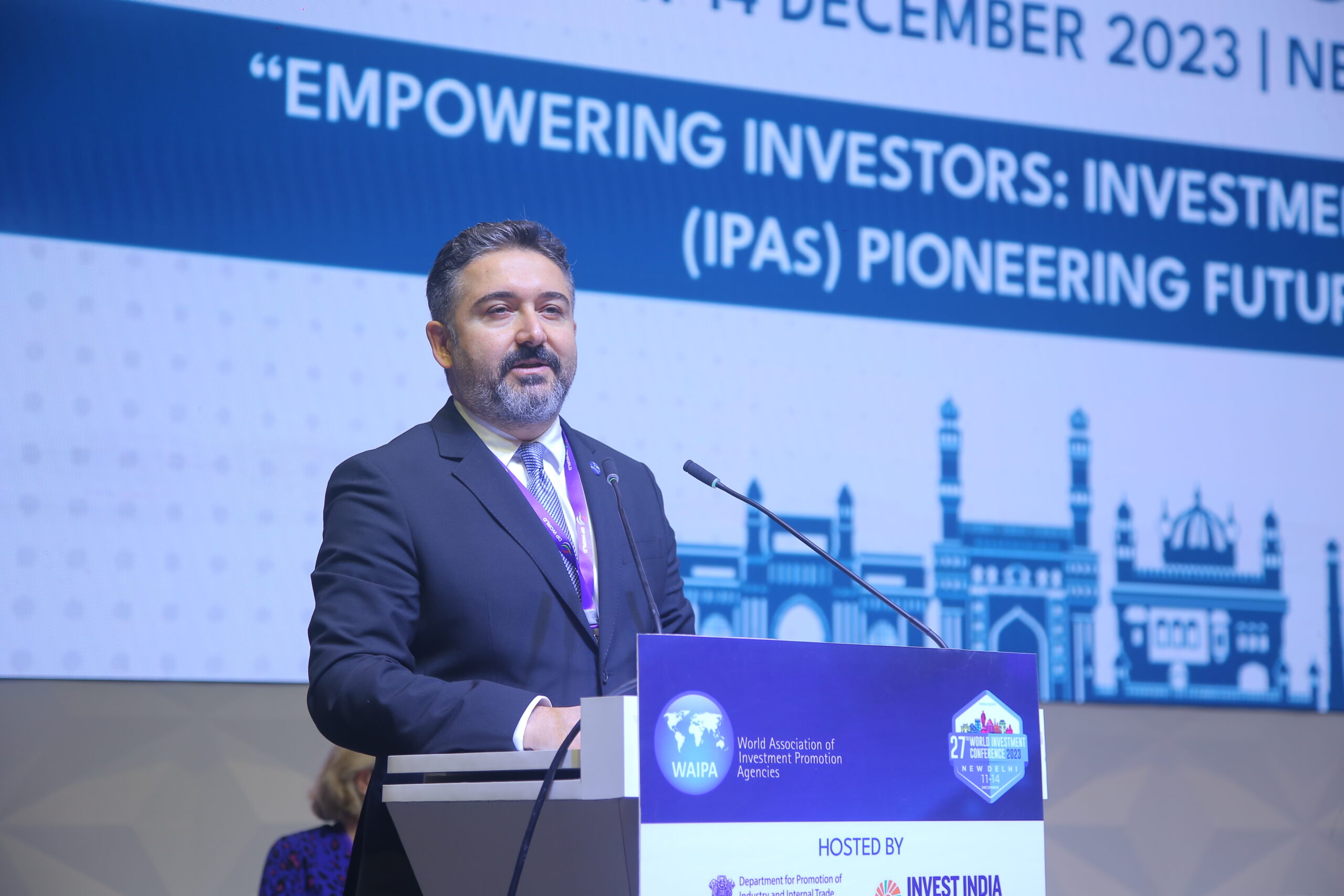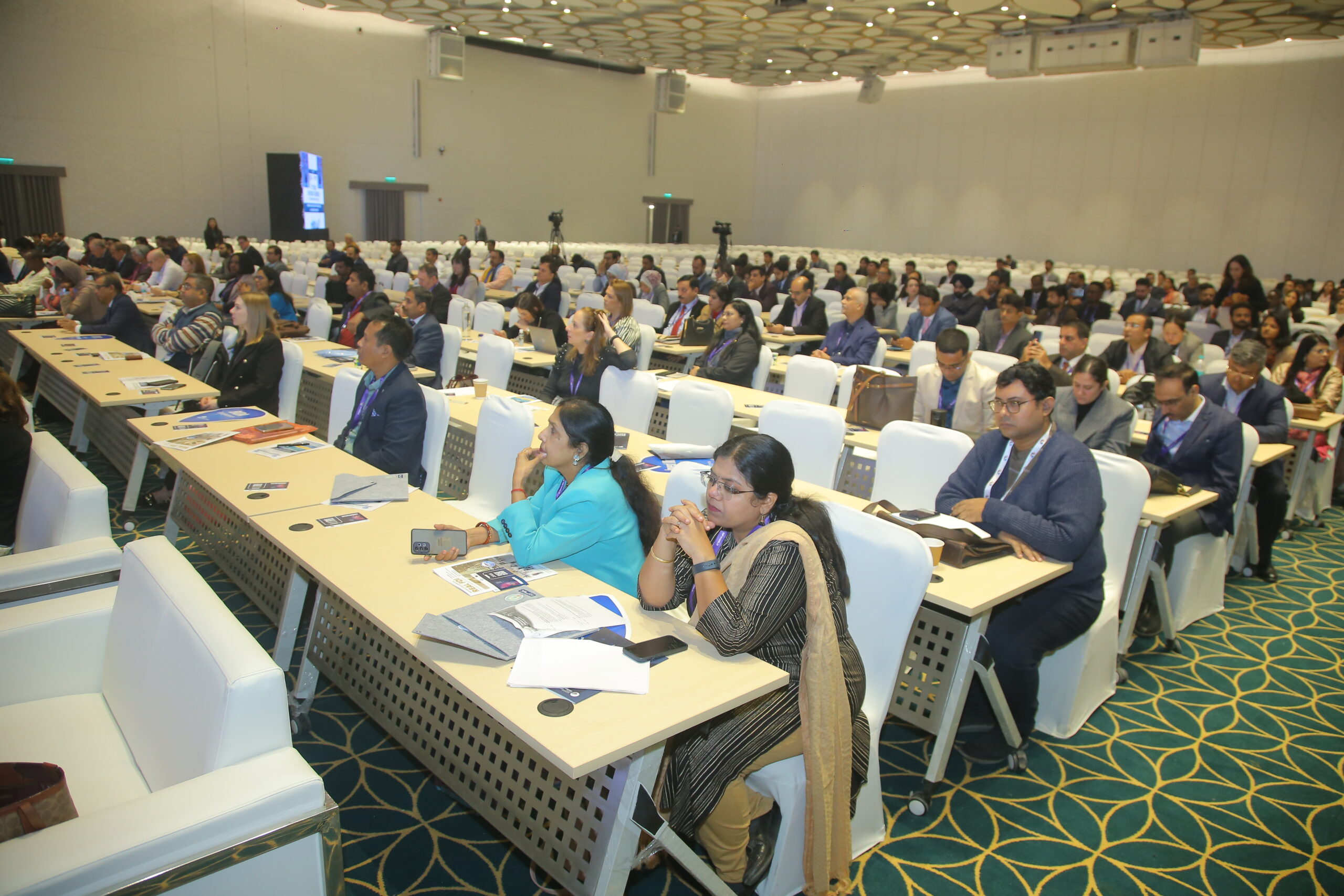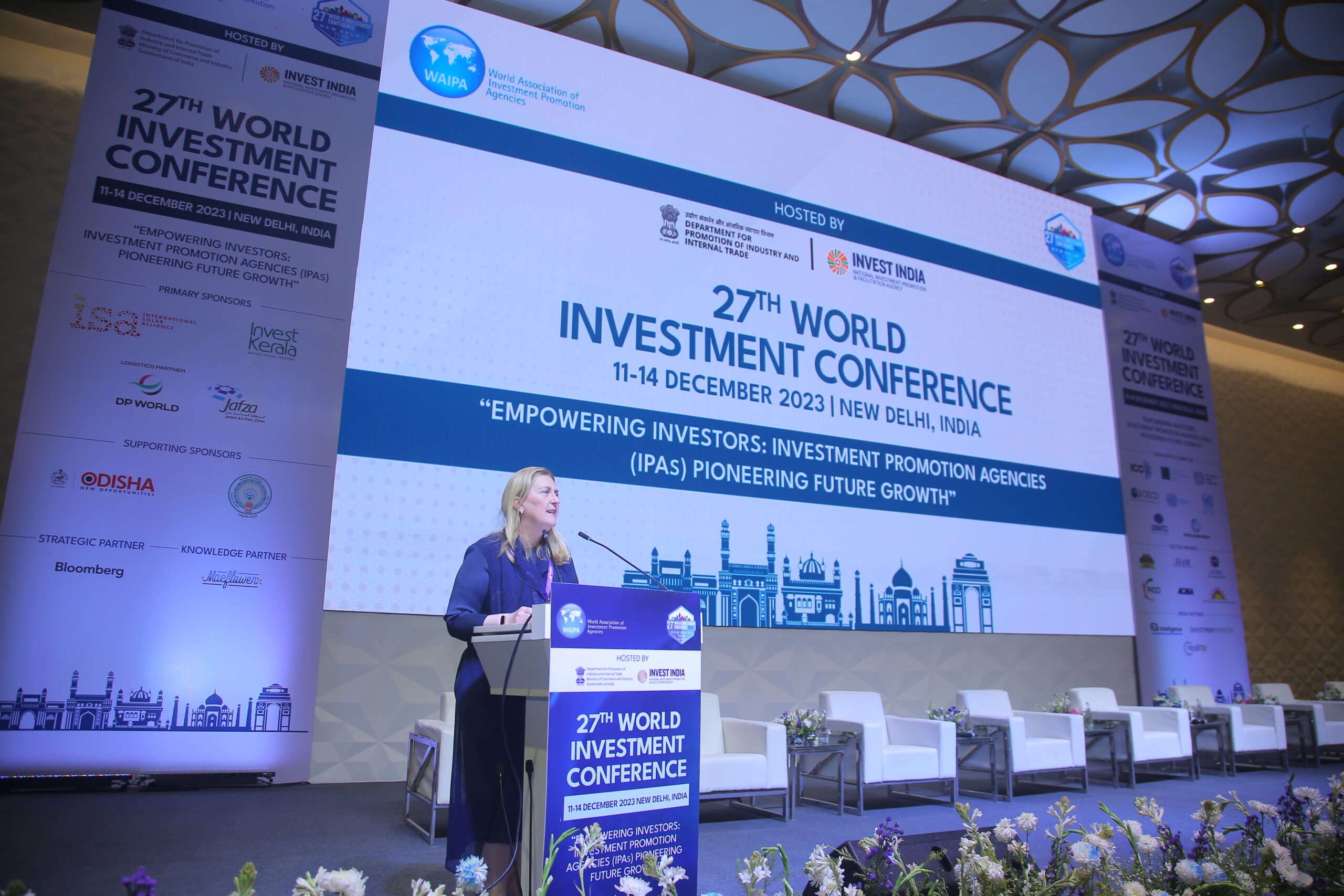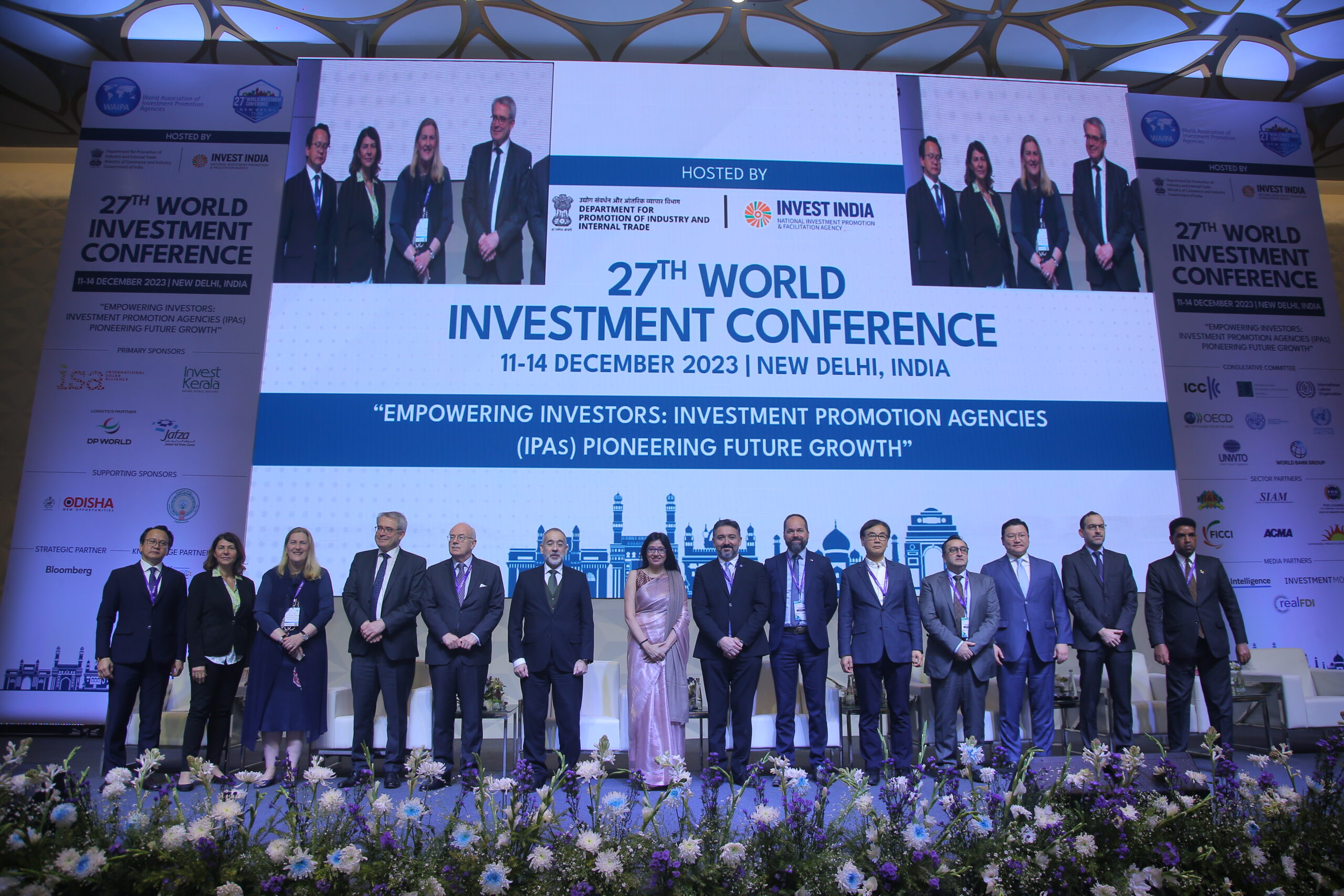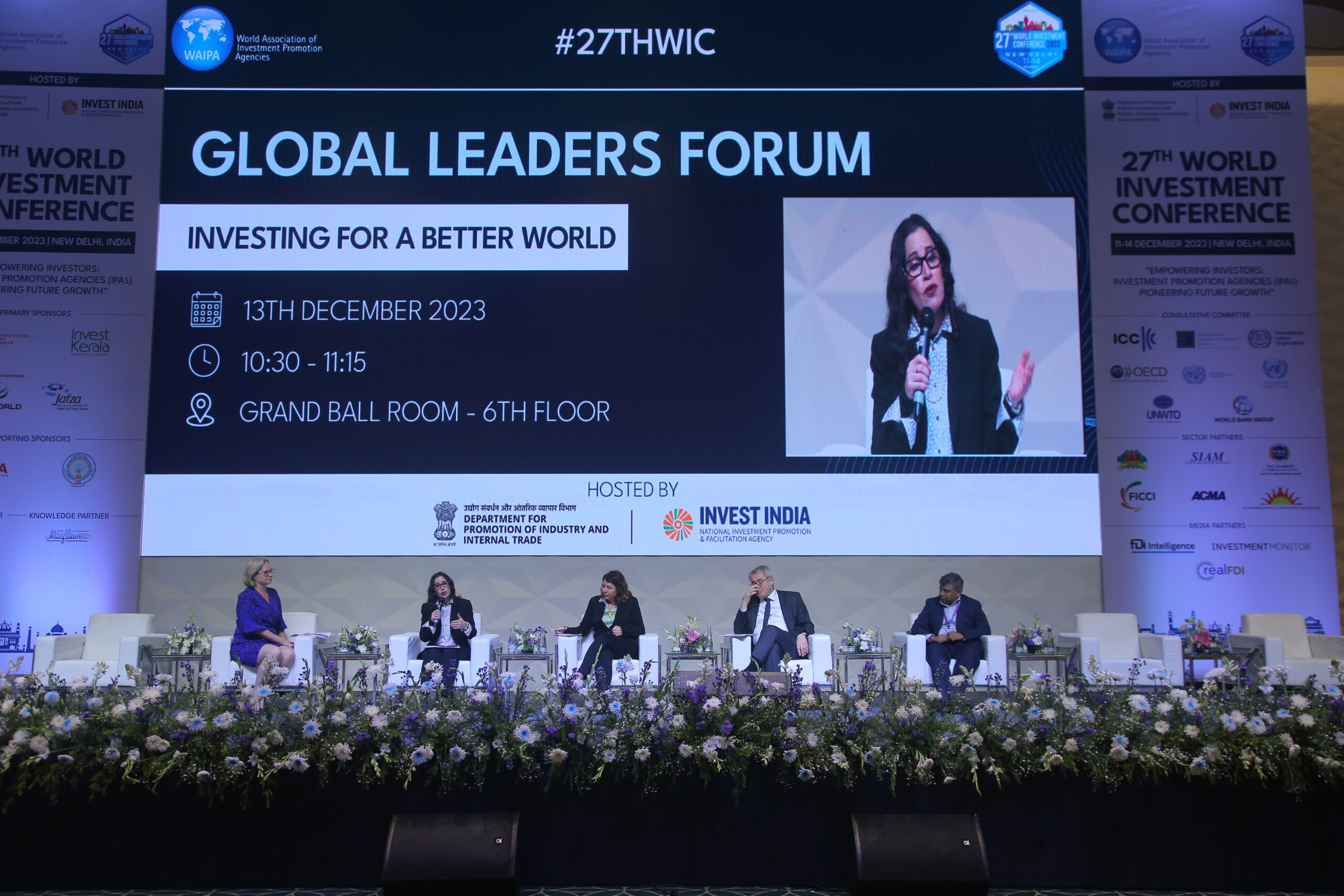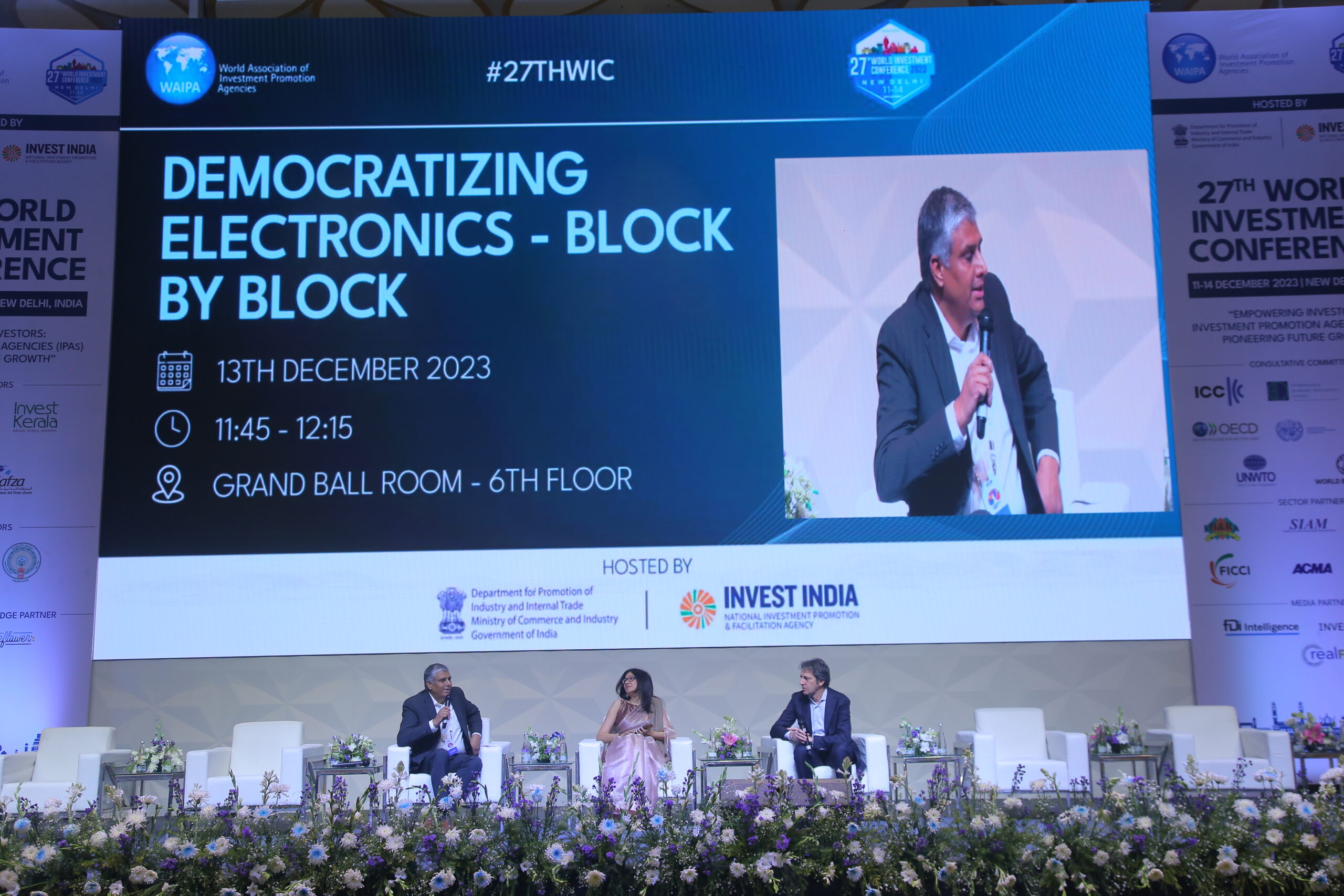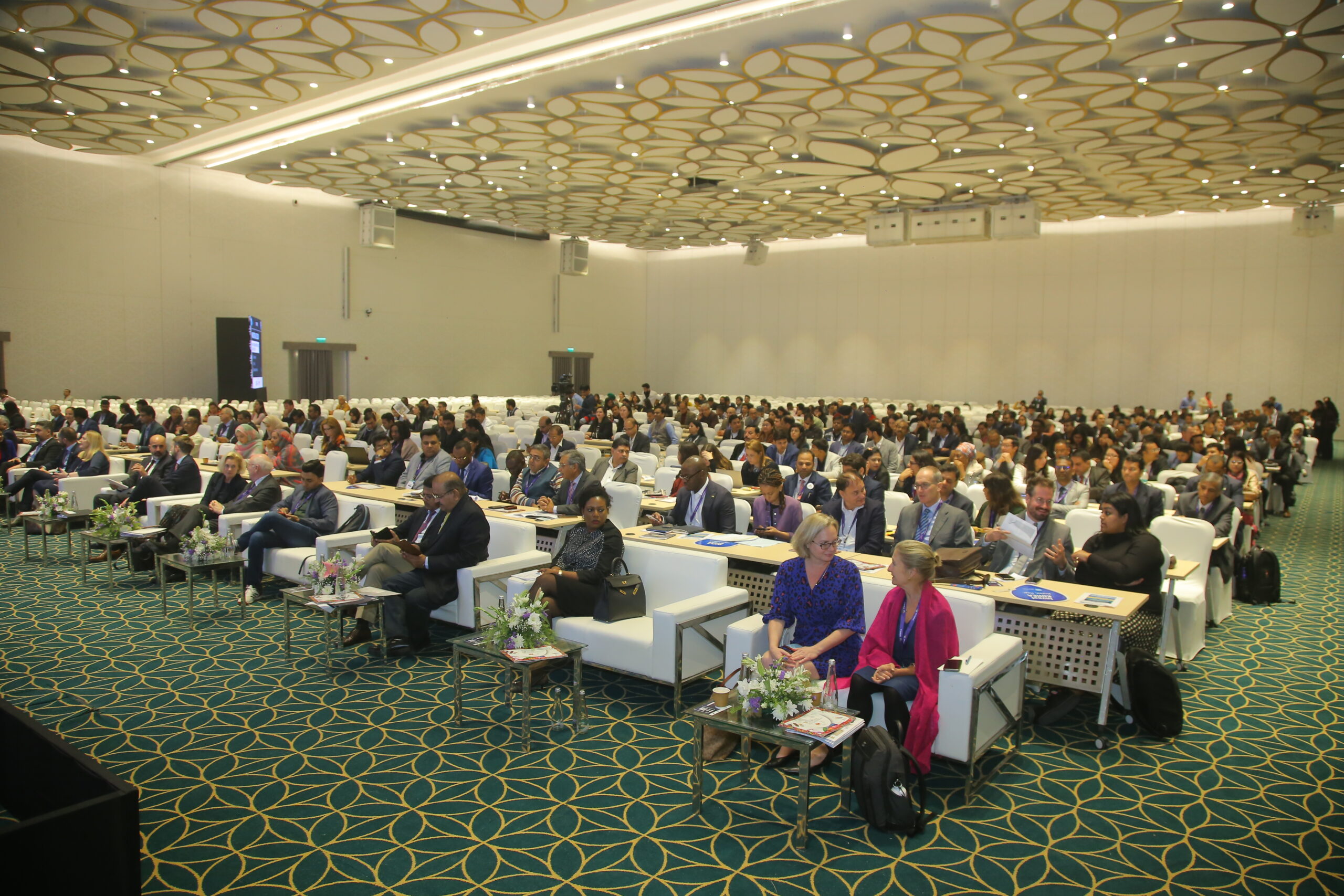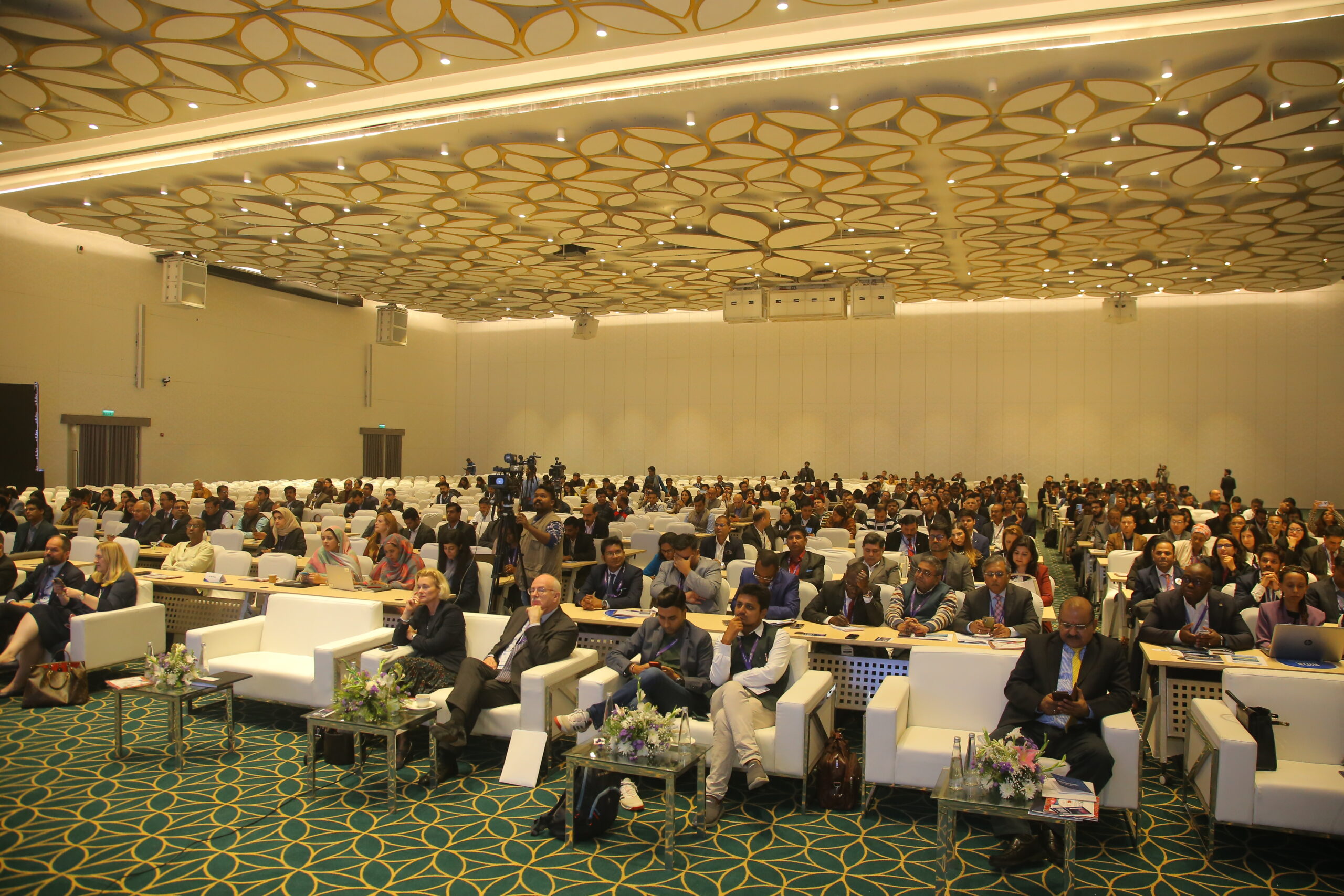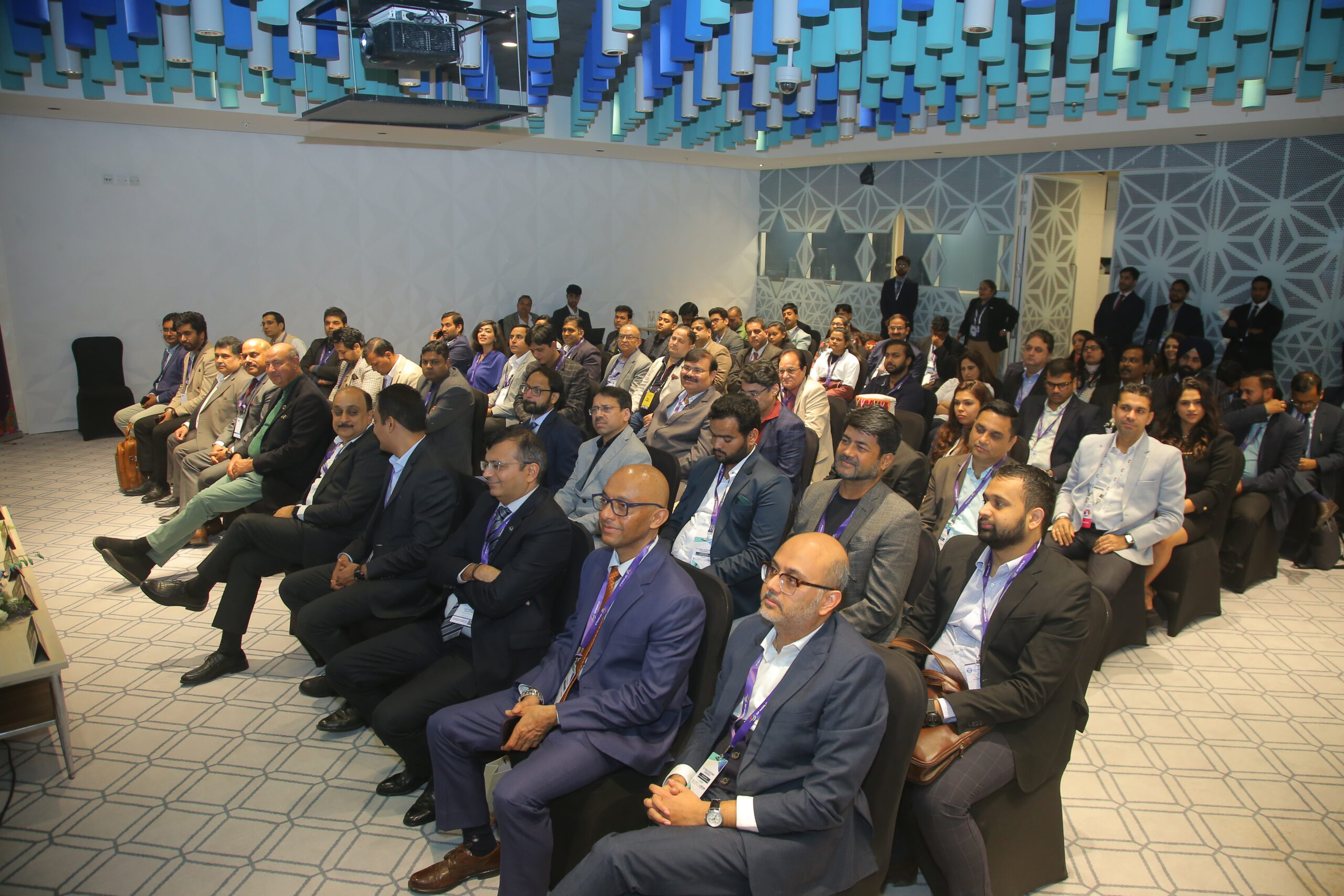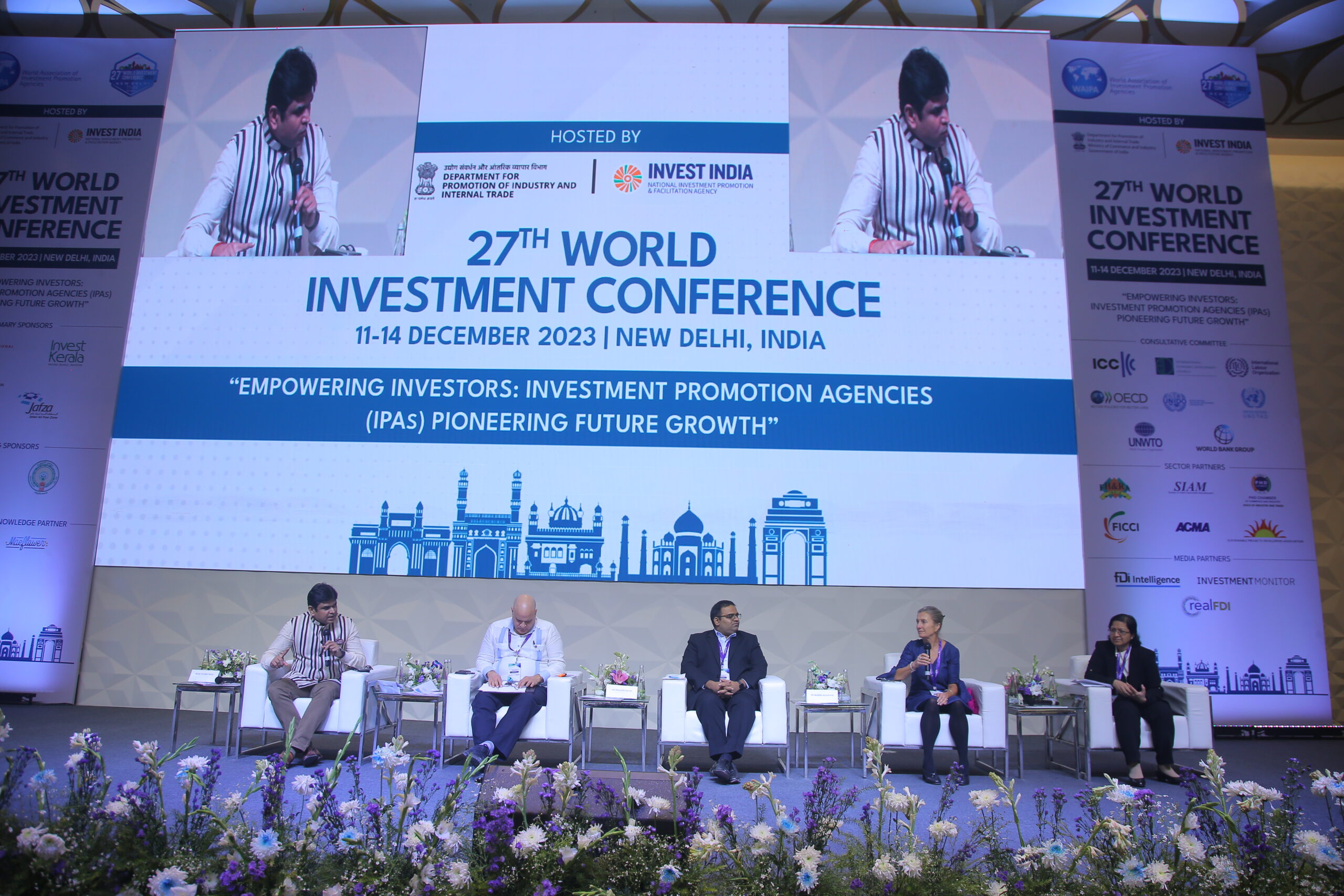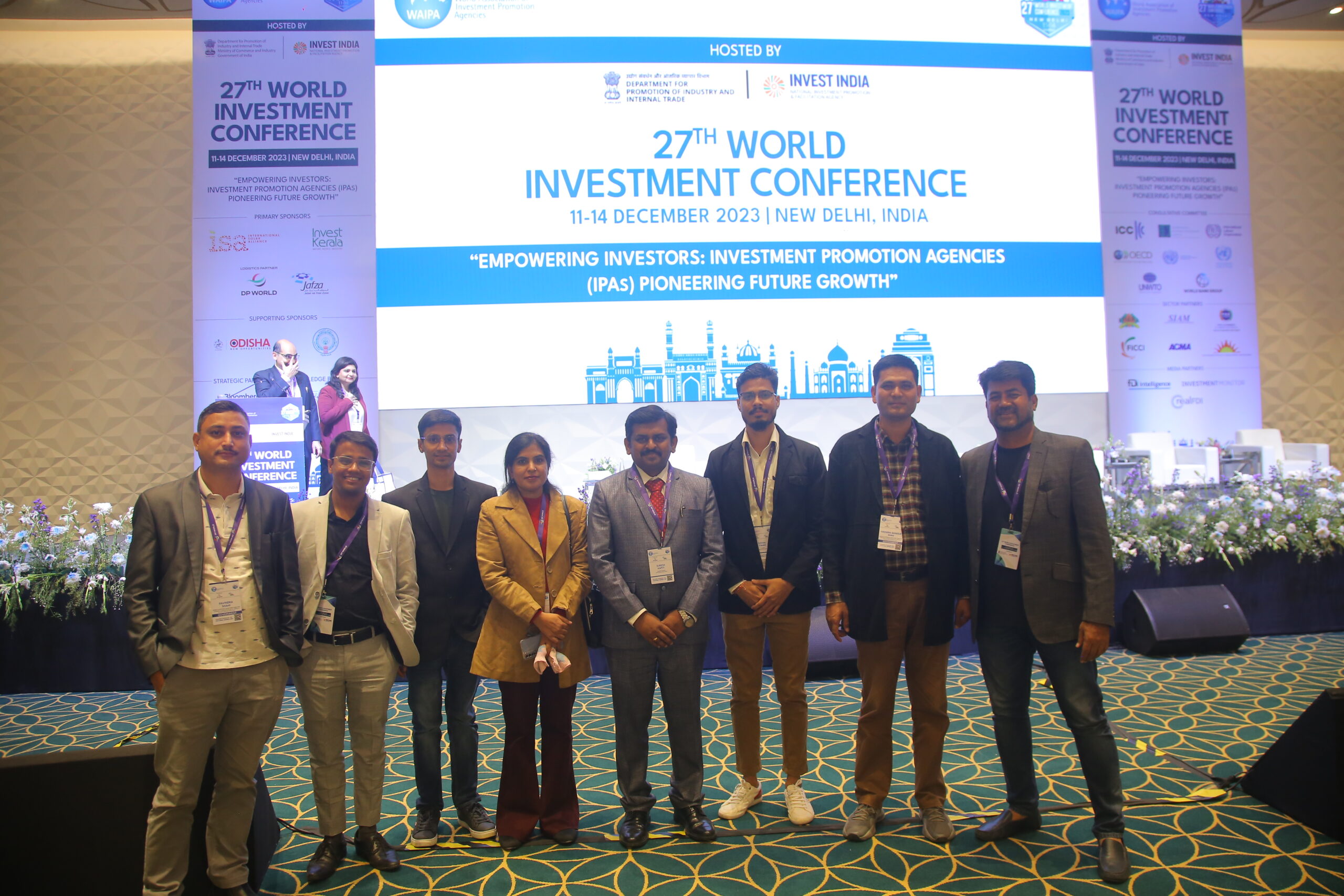The 27th annual WAIPA World Investment Conference (#WIC23) was held in New Delhi, India from 11-14 December 2023. The World Investment Conference (WIC) is a forum where IPAs convene to address current economic and social issues that may affect global investment flows and other strategic and policy considerations.
The World Investment Conference 2023 tackled many segments in the Investment Arena; we can divide them as follows:
- Ministerial Session
The conference featured a notable line-up of panelists during the Ministerial session that took place on 13th including special address by His Excellency Jan Christian Vestre, Honourable Minister of Trade of Norway, Her Excellency Manuella Santos, Honorable Minister of Investment of Togo, His Excellency Ibrahim Almubarak, Assistant Minister of the Ministry of Investment of the Kingdom of Saudi Arabia, and, Her Excellency Helene Budliger Artieda, State Secretary for Economic Affairs of Switzerland and His Excellency Mr. Piyush Goyal, Minister of Commerce of India made addresses during a ministerial session focused on The Role of Trade and Investment in the Decade of Action.
Ms. Manuella mentioned that International collaboration in the domain of trade and investment ensures sustainable future based on three principles, inclusion, social harmony and peace building, creation of employment and digitization in addition to the importance of PPP who played an essential role in the process and mobilize resources for positive impact for communities. In addition, she asserted that IPAs have immense potential. While Mr. Ibrahim indicated that in order to address global challenges of climate change and public health, we must pool our resources and capital from diverse corners of the globe and to facilitate climate focused quality FDI through multi-faceted approach to improve green investments. The session ended with a wisdom advice from Mr. Goyal, “Treating other countries as a market will never work. Treating everyone as equal partners, will make the world progress”
- Global Leaders Forum
The Global Leaders Forum convened on 13th forward-thinking visionaries to deliberate on trends shaping global investment to devise strategies for balanced investment flows globally and recognizing the significance of even small investments in the broader trade landscape under the moderation of Ms. Courtney Fingar,Founder, Fingar Direct Investment and Senior Advisor, Europe and Communications, WAIPA. A distiguished speakers addressed their notes during the session started with Dr. Eloisa Klementich, Incoming Chair, International Economic Development Council (IEDC) & President and Chief Executive Officer of Invest Atlanta, she mentioned that IEDC represents over 45,00 economic development agencies and she gave some remarks on Trends seen in USA and refered to the importance to create own funds when possible, with interest rates from 0-3%, create partnerships to make labour costs competitive and Partner with developers to create housing spaces instead of commercial spaces.
This speech was followed by Mona Haddad, Global Director for Trade, Investment and Competitiveness, World Bank who highlighted the necessary of conducting Climate mitigation policies but do not foresee impact on developing countries, making it imperative for assistance provided to developing countries and their growth also she indicated that technology has been transformational for countries and can catalyze development in ways we have never seen before. Additionally, she stressed that the Developed must avoid divisive policies and do not ask countries to choose between China and the US, because many countries want to work with countries economically around the globe. They must keep trade and investment regimes open and believes that free trade agreements are positive for developing countries. Rule based multilateral- system must also be more flexible.
On the same context, Mr. Deepak Shenoy, Founder and CEO at Capitalmind, referred to Internationalizing currencies: expand into economies, which are starting to show scale, making economic world more representative.
- High-Level Panels
High-level panels saw speakers from industry, government, finance and investment, and multilaterals examine such themes as Investment in Technology and the SDGs, and Connecting Investors with Promising Investible Projects. As follows:
- High Level Panel on ‘Bridging the Gap: Connecting Investors with Promising Investible Projects”:
Moderator: Nitin Jaiswal, Head of Asia Pacfic – External Relations, Bloomberg
- Keynote address by Mr. James Zhan, Senior Director of Investment and Enterprise, UNCTAD
- Escipion Joaquin Oliveira Gomez, Director, Division of Enterprise Competitiveness and Institutions (DECI), International Trade Centre
- Rupa Chanda, Director for Trade, Investment and Innovation Division, UN Economic and Social Commission for Asia and the Pacific
- Desikan Sundarajan, MD & Country Manager, Equinor
- Susanne Pulverer, Ikea CEO and Chief Sustainability Officer, Ikea India
The panel emphasized that investible projects, which are focused, compelling and well-crafted plans that create ease in investment decisions, are crucial to attracting quality investment as they bridge knowledge gaps between stakeholders.
A keynote speech by Mr. James asserted that Sustainability capability would become competitive in the coming years so Countries, zones, capital markets have to be ready. Additionally, he indicated that Global corporate tax reforms would affect investment promotion Investment climate, which is worsening as risk return profile, has shifted significantly and he mentioned that Global value chain transformations going out leading up to 2030 and that the GVC intensive industries are electronics, textile and apparels, automotive- tend to restructure – new opportunities for IPAs to target
While Rupa Chanda, focused on the challenges faced by IPAs as: countries are competing with each other led to difficulty in attracting investments, competitive environment, IPAs are taking a very generic take on attracting FDI and countries are not taking a structured, nuanced or tailored approach. So IPA should understand the sector better and must tailor their approach to their national targets with the help of International Organizations to pool in resources and do more capacity building for attracting FDI.
Moreover, Suzanne P. indicated that Transparency and openness are an important aspect of fundamental long-term partnerships as the value system of the company and the leader of the company is what attracts capital. In addition, Desikan Sundarajan continued to stress on that the most important ingredient is getting partners, peers and stakeholders together
Escipion Joaquin Oliveira Gomez focused on ITC efforts to small business by granting these small businesses technical assistance, support their marketing tools and make them more competent to provide bank statements. Also they provide help to IPAs to understand the needs of the financial institutions.
At the end, Nitin stressed that business as usual will not help anyone, IPAs have to step back and redefine their value proposition. There is enough capital out there, just the right value proposition will have the capital flowing, allowing the global south to grow.
- High Level Panel on “FDI Trends and Global Investment Landscapes: Special focus on investment in technology and the SDGs”
Moderator: Dr. Matthew Stephenson, Head of Investment Policy and Practice, World Economic Forum.
Mr. Mark Menell, Partner, Silicon Foundry; General Partner, Partech; and Advisor, Cendana Capital
Sanjeev Branwal, Vrina Kapoor, Rakesh Ravuri, Sidhart Narayanan(invest india), Shivendra Singh National Association of Software & Services Companies (NASSCOM) of India
Mr. Anirudh Arun, Co – founder, COO, Blu Smart
Through this panel discussion, our expert panelists, focused into the topic of FDI, its significance, current trends & challenges. FDI is the heart and soul of economic growth, it promotes cross-border collaborations that amplifies innovation and drives progress. In this exchange, our panelists THEY provided valuable insights, case studies and shared their personal experiences of how FDI benefited them, thereby unravelling the power of FDI and its significance in catalyzing economic growth. They explored the ever-changing landscape of global investments, from the exciting opportunities that FDI presents to the challenges it entails. And focused on How to grow investment into technologies and how technologies can help.
Mr. Mark indicated that “in terms of investible opportunities in the value only 1 through 10 are in the areas of AI, not a day goes by that we don’t see 7 new startup’s, a full 25% has gone directly into AI which is staggering- apart from AI, Climate tech and Ed tech are important markets”.
Shivendra, highlighted the value of startups in the investment landscape and mentioned that the value, the scalability and impact of AI is tremendous and alignment is very critical and should include users of Ai to bring in a wider perspective Though R and D Is required, but must understand the e need of the client and that AI is transforming companies in every way possible. For AI to be successful it must be accessible – if investment goes into the AI structure making it accessible to every person, will make a huge difference – an accessible AI infrastructure is what the need of the hour is.
Following by the speech of Anirudh who asserted that investors should have a long game plan and must look at investment opportunities as a long term plan as we are no longer separating business from impact, as these technologies are newer form of business and indicated that when you have solid business in a large market which is linked with sustainability goals, will definitely attract investors to such a business”
Moreover, Vrina spoke about semiconductors and how they gained a lot of conversation when supply chains collapsed during the pandemic and mentioned that all the tools that allowed NASSCOM to operate during the pandemic were based on semiconductors. While Rakesh spoke about how to enable more investments into AI and indicated that investment should go into creating an AI infra, making it accessible to everyone by feeling it with data (similar to how payment structure created) as local communities owning the data, but able to give context of data back to AI.
Sidhart from Invest India stated that IPAs are the best listeners who listen to everyone and IPAs can be the vehicle to take the best practices across industries, governments and between industries and governments.
- Fostering Innovation:
- Fostering Innovation: Roundtable on AI
The session gathered government and industry leaders from developed and developing countries to discuss on Responsible AI framework and the need for a global body with a broad mandate. This collective effort discussed how to strengthen AI benefits while addressing potential risks for a more secure future.
- The Role of Private Investment in Research & Development (R&D)
Speakers:
- Hemant Bhimnathwala-Senior Innovation and Commercialization Manager at Agronne National Laboratory, United States
- Katja Lasch, Director, German Centre for Research and Innovation (DWIH)
- Ryan Warren- UKRI
- Arun K. Subramaniyan-Vice President Cloud & AI, Strategy & Execution, Intel Corporation
The session highlighted the impact of private investment on R&D, identified best practices, discussed challenges, and proposed strategies for leveraging investment to enhance innovation and technological advancements. This session will aim to leverage R&D for sustainable development and competitive advantage in the global market.


